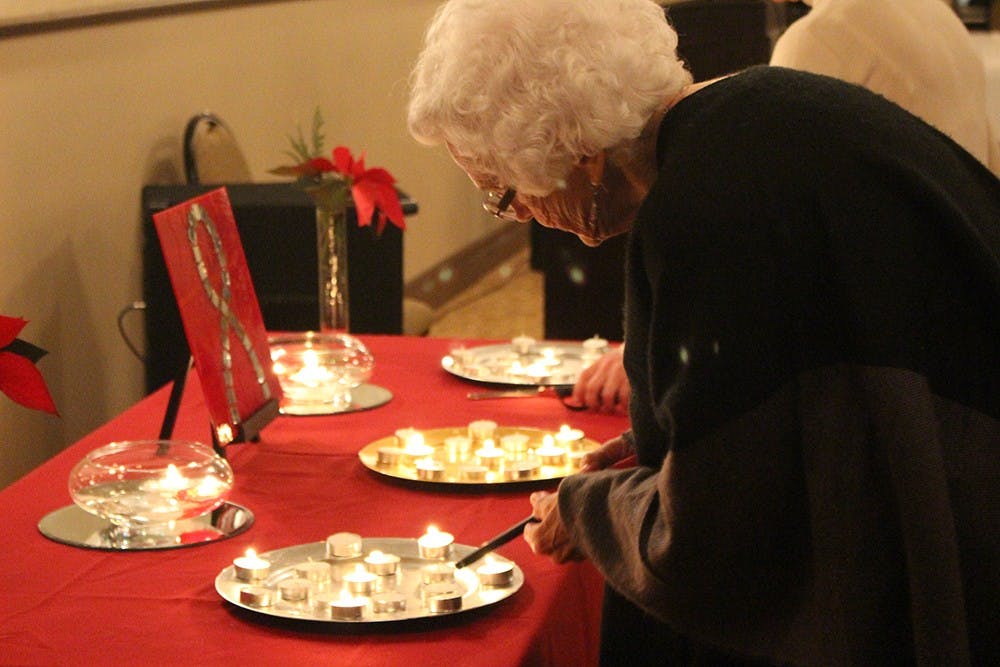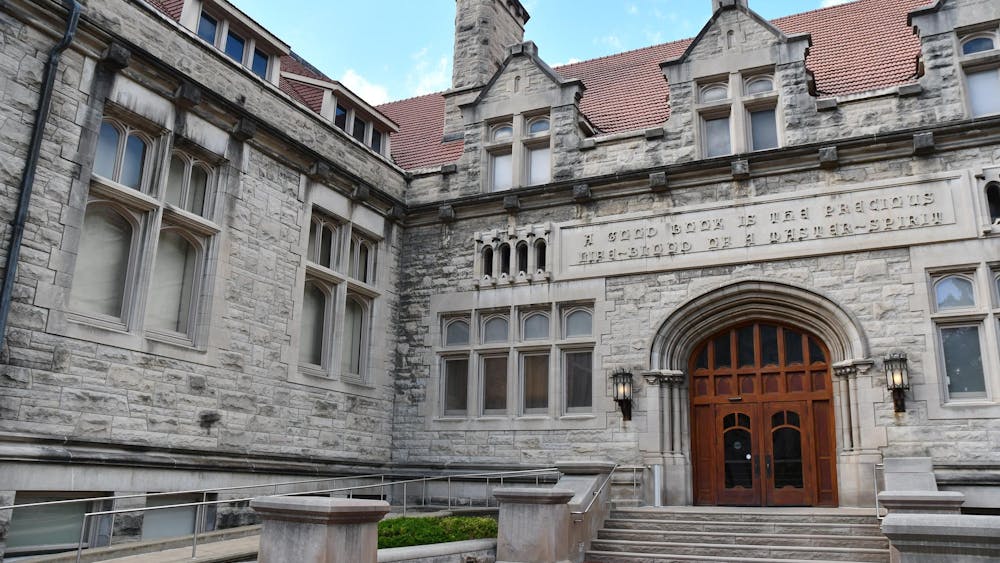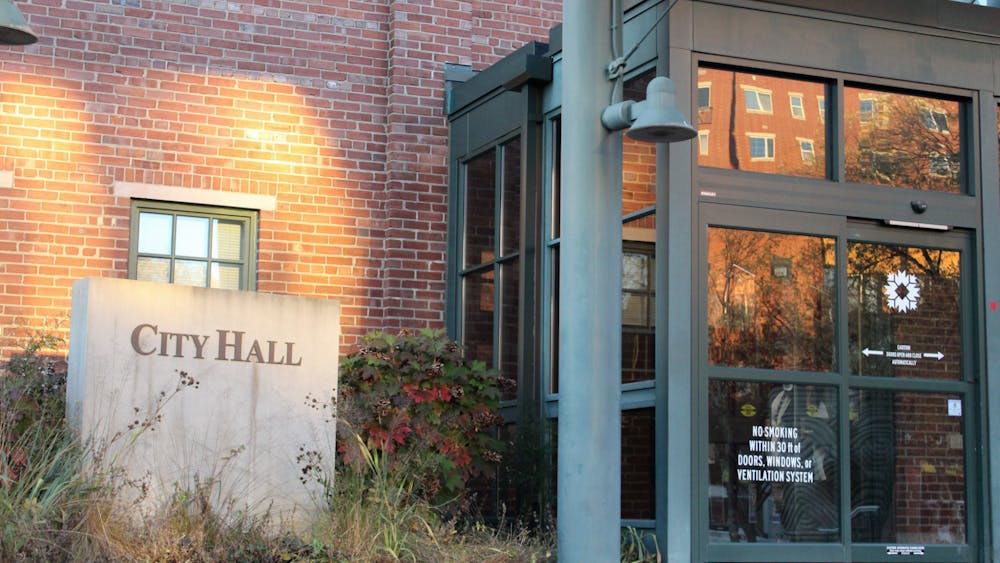Each year Doris and Bob Fox attend the World AIDS Day Ceremony and think about their son.
When Tom Fox was a young man, he was different from his brothers.
“We didn’t think anything about it,” his mother Doris says. “He was just Tom.”
Tom sometimes wore capes or overalls. He was constantly asking questions. He was the class clown and was always surrounded by friends.
“He enjoyed people,” Doris says. “He gathered them to him.”
Tom lived in Collins during his time at IU and every Sunday, when the cafeterias were closed, he would bring a big group of friends to his parent’s house in Bloomington for dinner. Tom’s parents adored him.
After graduation, Tom moved to Atlanta and began working for the Atlanta Journal-Constitution.
One night, when Doris and Bob were visiting, Tom introduced them to a man. Watching them, Doris could tell they were a couple.
Upset by the revelation, Doris and Bob drove home. Doris could barely eat.
Back in Bloomington, she called Tom. They talked for over an hour.
“I told him that no matter what, he was still our son and we loved him,” she says. “I told him that we were for him in anything that he did.”
Then, in April of 1983, Newsweek ran a cover story titled, “EPIDEMIC: The Mysterious and Deadly Disease Called AIDS May Be the Public-Health Threat of the Century.”
Doris called Tom. Tom said he was being very careful.
In 1987, Tom stopped returning calls.
“I kept getting excuses from his partner saying that Tom couldn’t talk, he was doing this, that and the other,” Doris says.
She persisted and learned Tom had pneumonia.
“It’s not the bad kind,” his partner had insisted.
***
Now 87, Doris sits at a table in Fountain Square Mall, listening to the Quarryland Men’s Chorus.
She’s surrounded by the roughly 40 attendees of the World AIDS Day Ceremony of Celebration and Remembrance.
In it’s ninth year, the event provides an opportunity for people living with HIV to feel supported, event organizers said. It provides an opportunity for people who have lost a loved one to AIDS to reflect.
The event is organized by the Community AIDS Action Group of South Central Indiana in honor of World AIDS Day, which is Dec. 1.
After the singing stops, there is a candlelight remembrance.
Women from HIV/AIDS Positive Link, an IU Health program providing social services for people affected by HIV, stand at the microphone. They read the names of 167 people lost to AIDS.
Bill, Joy, Matthew, Gary, Kevin, Sam, Valerie, Mark.
Mark would give you the shirt off his back, says one of the readers. She pauses, noting the truth in her cliché. “No, once he was actually cleaning out his house, and he just started handing out shirts.”
Richard, Ed, Terry, Troy, Rick, Adrienne, Robert.
Robert once sent one of the readers a bouquet of flowers just for helping him get health insurance.
The women light candles as “Seasons of Love” begins to play. They invite audience members to come and light their own candles for their own friends and family.
Maritza, Michael, James, Stewart, Chuck.
Chuck used to make everyone laugh by telling jokes about farts and dinosaurs.
Tom.
“Our son Tom died in 1989,” Doris says.
***
What had started with a pneumonia diagnosis became a two-year battle with AIDS. When Tom was in the hospital, Doris was by his side.
On July 3, 1989, Doris got a call. Tom had become very ill while visiting Mount Hood in Oregon. He was in the hospital and his friends didn’t want to put him on a ventilator. The doctors didn’t think he would live through the night.
“Tom can’t die,” Doris had said. “I was there when he was born, and I’m gonna be there when he dies.”
So they put him on a ventilator and Bob, who had been in British Columbia at the time, met Doris in Oregon.
They stayed with Tom for six days. While on the ventilator, writing was the only way he could communicate.
On the sixth day, he wrote that he wanted to be taken off the ventilator.
“Tom,” Doris had said. “You know we don’t want to lose you. We want to keep you.”
He asked that it be done the next morning.
“It was one of the hardest nights of my life,” Doris says. “We got up knowing our son was going to die that day.”
The next morning, July 11, 1989, they arrived at the hospital. Tom was taken off the ventilator. He blew his nose.
“Then he just died,” Doris said.
Since then, his parents have done everything they can to remember their son and honor his memory.
They started a support group of family and friends of lesbians and gays and a grief support group at the mental health center.
“The thing that bothers me is there are still so many people who find out that their child is gay, and they either throw them out of the house or don’t have any connection with them anymore,” Doris says.
Though they recognize things have gotten better, Tom’s parents say they still see things that need to change.
“Don’t be bashful about telling things the way they really are,” Bob says. “Tom didn’t want to lie about his illness. He wanted people to learn and understand.”
***
When Doris sent Tom’s obituary to the Bloomington Herald-Times, the man at the newspaper had been confused.
“Are you sure that’s how you want it to read?” he asked.
Tom was the first person in Bloomington whose death announcement said he had died from complications relating to AIDS.
“Yes,” Doris said.






